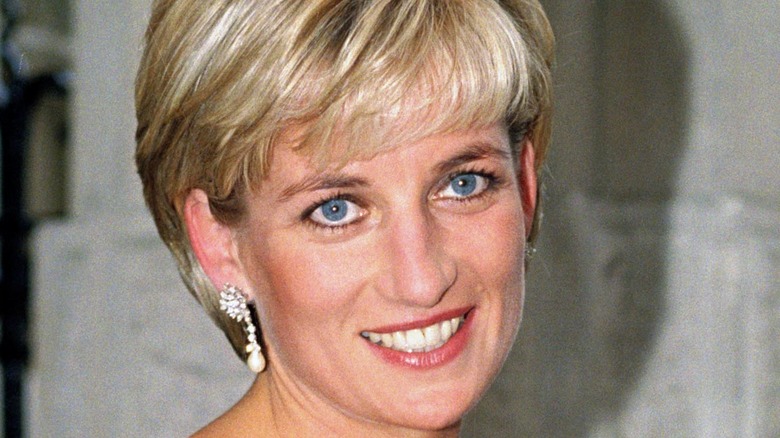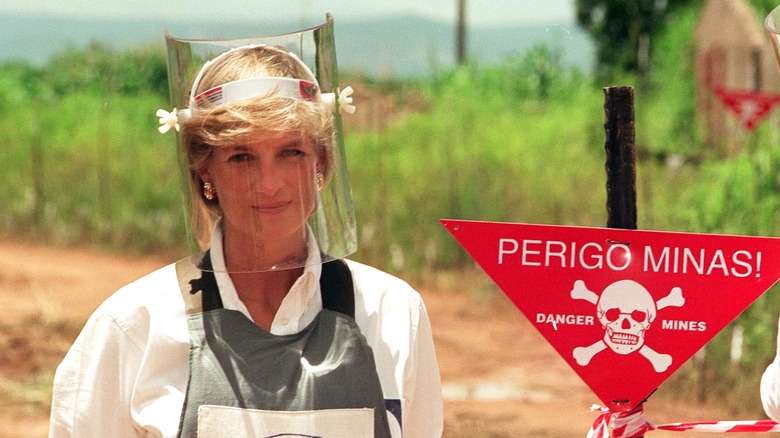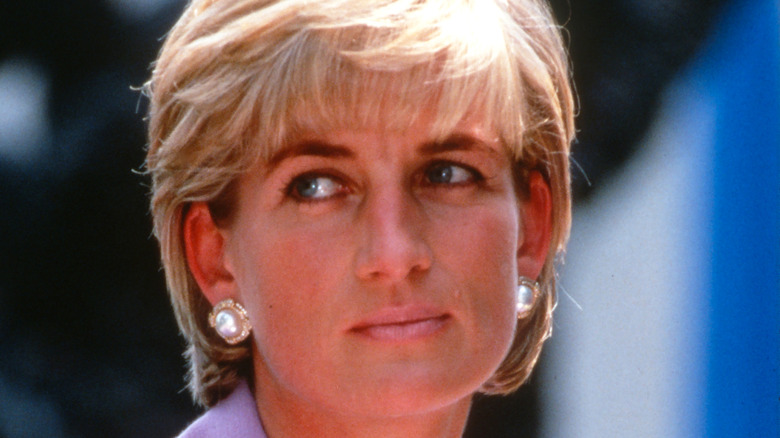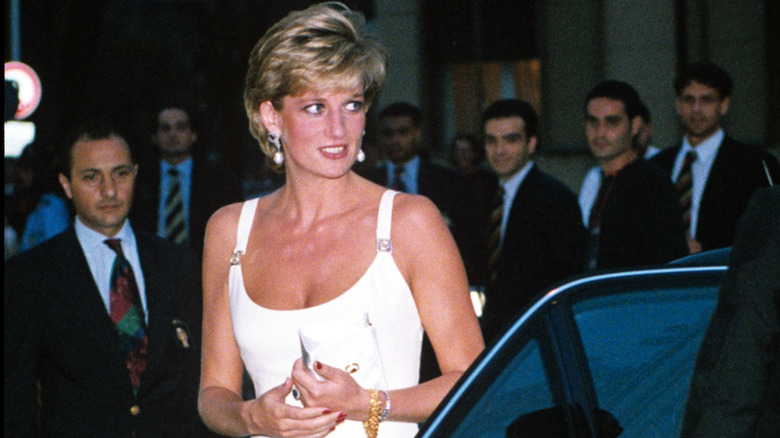How Princess Diana Put Her Life At Risk Mere Months Before She Died
Throughout Princess Diana's life, she dedicated her time to helping those in need and championing important causes. As a royal family member, she was involved in over 100 charities, including the British Red Cross. She first became a patron of the Red Cross Youth in 1983 and vice president of the charity in 1993.
Following her divorce from Prince Charles, she had to resign as patron of many of the charities she was involved with, the British Red Cross among them. However, she continued to engage with and work for the organization and became a significant part of their campaign with the International Committee of the Red Cross to stop landmines in 1995.
In the year of her death, Princess Diana visited two countries that had been plagued with landmines following civil wars. As the Mines Advisory Group notes, these visits "brought the world's attention to the true horror inflicted on communities" and helped the United Kingdom pivot "to supporting a global ban" against the use of anti-personnel landmines.
Princess Diana walked through an active minefield
In January 1997, Princess Diana traveled to Angola with the British Red Cross in a historic visit (via TIME). She saw the work of The HALO Trust there, a non-profit charity and organization that clears landmines in war-torn areas. The HALO Trust had been working to clear minefields in Huambo province since 1994, during an ongoing civil war. That war ended in 2002, but the area "remains one of the world's most heavily landmine-contaminated countries." During her visit, Diana met landmine survivors and walked through a cleared portion of an active minefield wearing protective armor and headgear. Decades later, that minefield is now clear and is a thriving community with schools and businesses.
"Diana's visit is something that people in Huambo still talk about to this day," Ralph Legg, program manager of The HALO Trust's Operations in Angola, told TIME. "For the people that were here at the time, which was obviously still a time of conflict, it led to a feeling of acknowledgment, and that their plight was recognized around the world."
Diana was very vocal about her stance on landmines during a time when "negotiations were ongoing to initiate the Mine Bans Treaty." She was so vocal that British lawmakers called her a "loose cannon" for getting involved regardless of the government policy at the time, per TIME.
Some interpreted her stance on landmines as a political statement
Princess Diana wasn't allowed to speak about the campaign to ban landmines in British Parliament, so a conference was set up in the National Geographical Society building in London (via Mines Advisory Group). On June 12, 1997, Diana delivered a keynote at a seminar hosted by the Mines Advisory Group and the Landmine Survivors Network (via the Archives of Women's Political Communications at Iowa State University), in which she spoke about her experiences in Angola and how "the world is too little aware of the waste of life, limb and land which anti-personnel landmines are causing among some of the poorest people on earth."
Before her visit, she was "largely unaware" of the issue. But as she learned during her time in Angola, "long after conflict is ended, its innocent victims die or are wounded singly, in countries of which we hear little. Their lonely fate is never reported." While she acknowledged that some chose to interpret her visit "as a political statement," she clarified that her interests were "humanitarian." Diana continued: "This is why I wanted to play my part in working towards a world-wide ban on these weapons."
Diana's last public engagement was a visit to landmine survivors in Bosnia
Three weeks before her death, Princess Diana made her last public engagement to Bosnia. During her three-day trip, she met with victims of landmines as a guest of the Washington-based Landmine Survivors Network (via BBC News). In addition, she visited landmine projects in Travnic, Sarajevo, and Zenezica (via the royal family's official site). Unlike her visit to Angola, this trip was described as "entirely private." As BBC News reported, Diana visited the homes of landmine victims as well as local charities and specialists supporting those affected.
"It was a very brave decision for her to come here only two years after the war," survivor Zoran Ješić told TIME. "The situation wasn't so stable, and I had the feeling that Diana used her popularity to help people in states like mine. Her contribution on the international level was enormous."
Diana had a particularly poignant effect on one family in the village of Dobrnja near Tuzla (via Associated Press). The Suljkanovic family suffered devastatingly from the landmines in the area after the family's father, Muhamed, lost both his feet. The family was overjoyed to meet Diana, who celebrated Muhamed's birthday with the Suljkanovics. After hearing she had died only a few weeks after meeting her, they named their newborn daughter after her. "They saw we have to somehow remember good people, and we remember her like that," Muhamed said.



